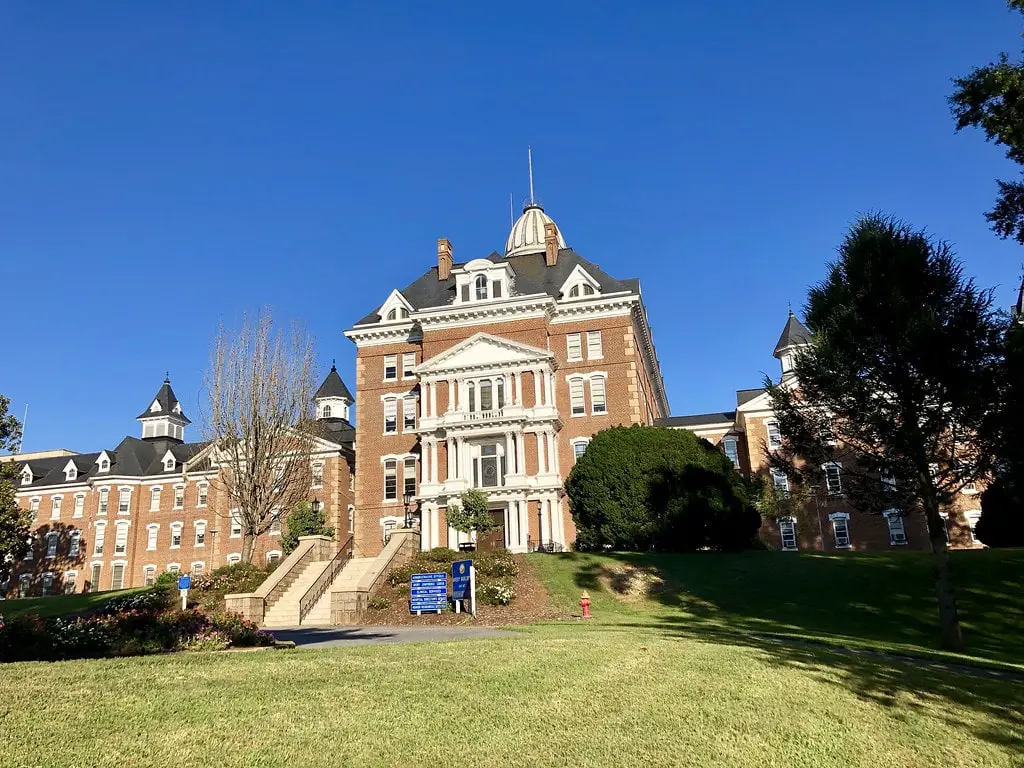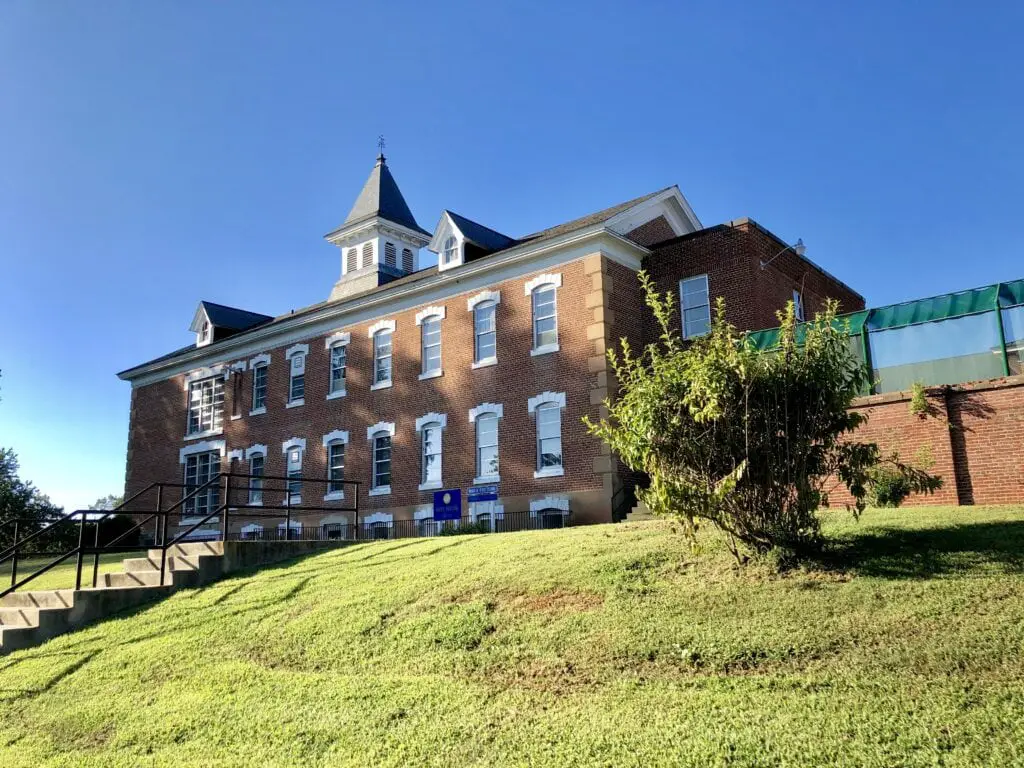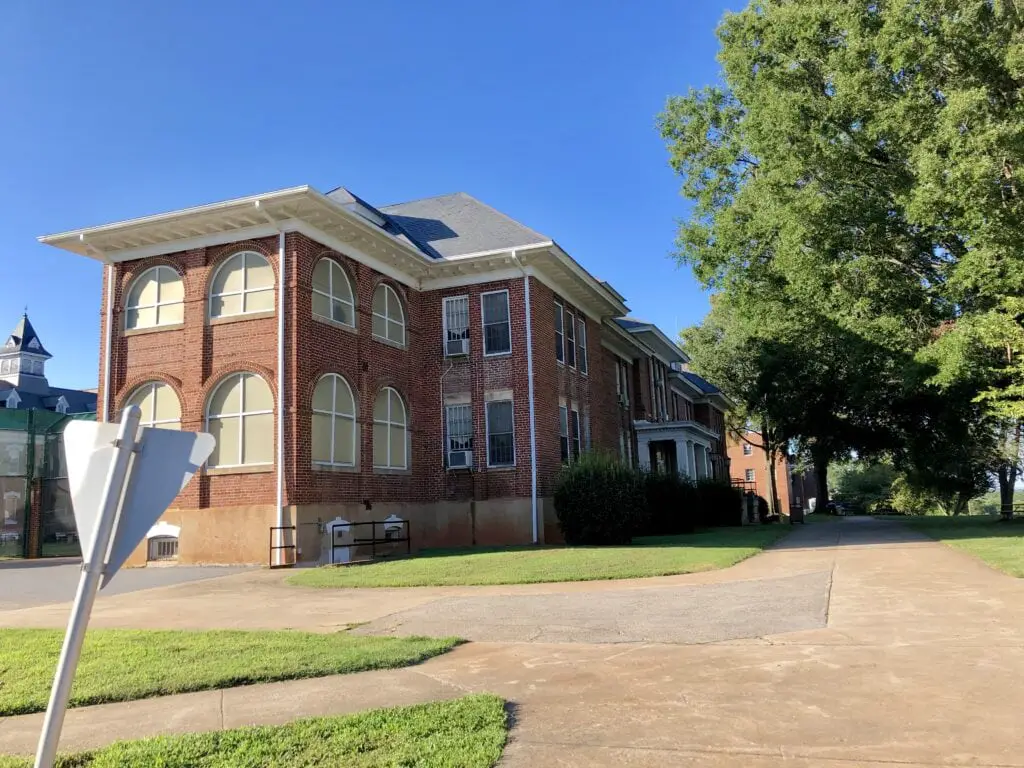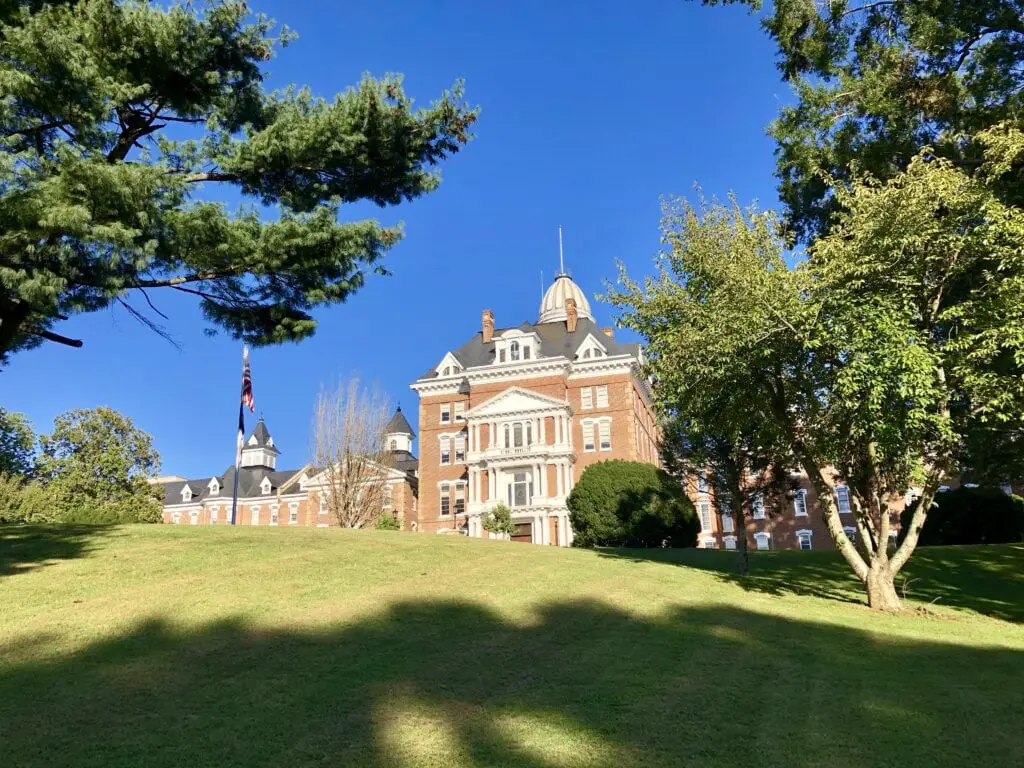The Genesis of Broughton Hospital
Broughton Hospital is a testament to a history of compassion, community, and care. Its story begins in 1850 when Dorothea Dix, a renowned mental health activist, petitioned the North Carolina General Assembly to build a psychiatric hospital.
The need for mental healthcare was so significant that the Assembly acknowledged the necessity for another facility. Thus, with an initial investment of $75,000, a second psychiatric hospital was built on 283 acres of land in Morganton.
The Western Carolina Insane Asylum, as it was initially known, opened its doors on March 29, 1883, and was soon home to over 500 patients.
Over the years, the hospital underwent several expansions and name changes over the years, reflecting its evolving role in mental healthcare.
By 1890, it was known as the State Hospital at Morganton, a name it retained until 1959, when it was renamed Broughton Hospital, honoring World War II Governor J. Melville Broughton.
Transformations and Patient Care
The following decades were a period of change and progression for Broughton Hospital. The 1960s were particularly transformative as the hospital introduced educational programs and incorporated religious services.
A significant shift was the effort to de-institutionalize the mentally ill and treat more patients in local settings. This was a bold step towards integrating mental healthcare with community living, a move ahead of its time.
The 1970s brought another wave of changes. The hospital re-evaluated its housing procedures, moving away from geographical placement towards housing patients by age or disability.
A milestone was achieved on March 28, 1973, when the hospital received its first accreditation from the Joint Commission on Accreditation of Healthcare Organizations, a testament to its commitment to quality healthcare.
Overcoming Challenges
The journey of Broughton Hospital has not been without hurdles. The 1980s and 1990s were particularly challenging due to increased costs and oversight. However, every challenge became an opportunity for growth and innovation.

The Broughton Hospital Foundation was formed in December 1992 to enhance the lives of the patients at Broughton Hospital through donations, endowments, and activities. Despite the challenges, the hospital stood firm, demonstrating its resilience and unwavering commitment to mental health.
One of the recent challenges that Broughton Hospital faced was a significant staffing shortage. However, the state’s proactive response to these challenges is a testament to the importance of maintaining quality care. This approach has been crucial in ensuring the hospital continues serving its patients effectively.
Broughton Hospital Today
Today, Broughton Hospital is a vibrant care hub, serving approximately 800 patients annually. With a dedicated staff of about 1200 and an annual operating budget of $98 million, it remains a key player in North Carolina’s mental health landscape.

The hospital has also embarked on modernization efforts, with the completion of a new facility in 2017 that consolidates hospital departments and patient divisions under one roof.
The new facility and the preserved historical main building represent the blend of tradition and innovation that Broughton Hospital embodies. As a landmark institution, it is a reminder of our community’s commitment to mental health, a commitment that has stood the test of time.
Conclusion
Broughton Hospital has come a long way from its humble beginnings in 1883. It has weathered challenges, embraced changes, and continually reinvented itself to meet the evolving needs of its community.

It stands not just as a building but as a beacon of hope and healing for those grappling with mental health issues. Today, the hospital’s halls echo the legacy of its past, serving as a testament to the resilience and dedication of the many individuals who have worked tirelessly to care for its patients.
Yet, Broughton Hospital also serves as a reminder of mental health institutions’ challenges. The hospital has continually been tested, from the high patient-to-physician ratios of the past to the current staffing shortages.
Its ability to continue providing vital services in the face of adversity underscores the importance of such institutions in our society.

Moreover, the haunting legacy of the hospital, with stories of ghostly encounters and a cemetery holding the remains of past patients, adds an eerie dimension to its history. These stories, entwined with the hospital’s past, serve as a stark reminder of the individuals who once roamed its halls.
Each ghostly tale and unmarked gravestone carries a narrative, whispering of a life touched by mental health struggles.
Broughton Hospital is more than just a psychiatric institution. It’s a symbol of community strength, a monument to the ongoing battle for mental health care, and a sanctuary for those who seek help. It’s a testament to the enduring spirit of Morganton, North Carolina, and a beacon of hope shining bright for the future.

My grandparents lived across from this hospital and worked in the Kitchen there for 35 years. I often spent weeks with them in the summer. I also had an Aunt that had problems with mental health, and stayed there for several months. I would walk across the Highway from Gant St. to visit my aunt. She would be sitting in the window sill and waving at me when she saw me coming to visit her. I have many memories of that place. My grandfather, grandmother, Great Aunt, And another Aunt worked there till retirement. Hated to see it close down as it once was. Have many memories of summer weeks there, Anna
Your memories of Broughton Hospital and its role in your family’s life are touching. Your personal stories give us a unique perspective on this place. Thank you for letting us in on these treasured recollections.